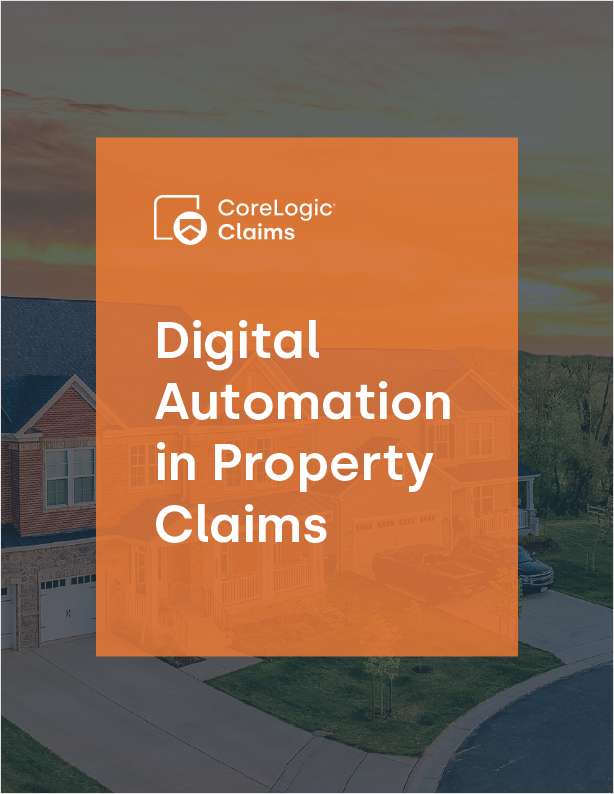The Big Gun Rights Case SCOTUS Never Took: No Appeal for Remington Over Sandy Hook
Remington Arms Co. LLC's won't get its day before the U.S. Supreme Court, which Tuesday denied certiorari in an appeal over the 2012 Sandy Hook Elementary School mass shooting.
November 12, 2019 at 10:00 AM
5 minute read
 The U.S. Supreme Court building in Washington, D.C. Photo: Diego M. Radzinschi/ALM
The U.S. Supreme Court building in Washington, D.C. Photo: Diego M. Radzinschi/ALM
The U.S. Supreme Court Tuesday morning declined to hear Remington Arms Co. LLC's appeal, after the Connecticut Supreme Court rejected the gunmaker's arguments of zero liability for the 2012 Sandy Hook Elementary School mass shooting.
The case will decide whether victims' families can hold companies accountable for crimes committed with their products. And now that the high court has denied certiorari, litigation will continue in Connecticut.
Remington had been pinning its hopes on the federal Protection of Lawful Commerce in Arms Act, which shields gunmakers, and it had hoped the country's high court would overrule a March Connecticut Supreme Court ruling. In that ruling, the state court justices found that the plaintiffs could sue Remington under an exception to the federal law, allowing legal action to proceed over the way the company sold and marketed firearms.
"The Connecticut Supreme Court below held that the PLCAA's predicate exception encompasses all general statutes merely capable of being applied to firearms sales or marketing," Remington wrote in its appellate brief. "In contrast, both the Second and Ninth Circuits have rejected the broad interpretation of the predicate exception, which would swallow the PLCAA's immunity rule."
But the plaintiffs asked the U.S. Supreme Court to deny the company's request for review, because the state court has already decided on the issue.
"The Connecticut Supreme Court's interlocutory decision is not within the court's certiorari jurisdiction" under the U.S. Code, they argued. "Nor does it present a question worthy of this court's review. Petitioners' claim of a conflict with the federal court of appeals decision is contrived."
At issue is whether Sandy Hook families can sue Remington because shooter Adam Lanza used an AR-15 Remington rifle to kill 20 schoolchildren and six educators at the elementary school.
Attorneys for the families have maintained the AR-15 rifle should only be used in battle, and not be sold to civilians.
"The Sandy Hook victims were slain in a commando-style assault on the school," the plaintiffs' brief read. "Their killer's weapons of choice was a Bushmaster XM15-E2S rifle, manufactured and marketed by petitioners. The XM15-E2S was designed for military combat, specifically to inflict maximum lethal harm on the enemy."
The case has attracted top litigators.
Court filings show former U.S. Solicitor General Donald Verrilli Jr., of Washington, D.C.-based Munger, Tolles & Olson, filed a brief on behalf of the families.
Verrilli is among the highest-profile attorneys in the country. He teamed with Munger Tolles colleagues Elaine Goldenberg, Rachel Miller-Ziegler, David Fry, Benjamin Horwich, Justin Raphael and Teresa Reed Dippo. They joined with Connecticut attorneys Josh Koskoff, Alinor Sterling and Katherine Mesner-Hage of Bridgeport-based Koskoff Koskoff & Bieder.
In an emailed statement, Koskoff said his clients are grateful the Supreme Court "denied Remington's latest attempt to avoid accountability."
"We are ready to resume discovery and proceed toward trial in order to shed light on Remington's profit-driven strategy to expand the AR-15 market and court high-risk users at the expense of Americans' safety," Koskoff said.
The Koskoff firm brought suit against the gunmaker in 2014 on behalf of the families of nine of the victims. The suit sought financial damages against Remington and its daughter company, Bushmaster Firearms International LLC. That case is pending.
Opposing counsel are Swanson Martin & Bell Chicago attorneys James Vogts and Andrew Lothson and Baker Botts litigators Scott Keller and Stephanie Cagniart. They did not immediately respond to a request for comment.
Connecticut Attorney General William Tong, who filed an amicus brief supporting the families in 2017, said they deserve their day in court under the Connecticut Unfair Trade Practices Act.
"The AR-15 is a weapon of war designed to inflict maximum lethality and should never have been marketed to civilians," Tong said in an emailed statement. "Connecticut's consumer laws were designed to protect against these kinds of harmful commercial activities. These families have suffered unimaginable trauma and heartbreak, and it is my sincere hope that this case provides a measure of justice. The Protection of Lawful Commerce in Arms Act is not an impenetrable shield against all responsibility, and gun manufacturers must be held accountable just like any other manufacturer of a consumer product for actions that violate Connecticut law and harm the public."
Related stories:
Sandy Hook Families Hire Ex-Solicitor General Verrilli for Fight With Gunmaker Remington
Gun Maker Gets Support From Politicians, NRA, 10 States in Sandy Hook Litigation
Read the Document: Remington Challenges Sandy Hook Ruling in US Supreme Court
This content has been archived. It is available through our partners, LexisNexis® and Bloomberg Law.
To view this content, please continue to their sites.
Not a Lexis Subscriber?
Subscribe Now
Not a Bloomberg Law Subscriber?
Subscribe Now
NOT FOR REPRINT
© 2025 ALM Global, LLC, All Rights Reserved. Request academic re-use from www.copyright.com. All other uses, submit a request to [email protected]. For more information visit Asset & Logo Licensing.
You Might Like
View All
CFPB Labor Union Files Twin Lawsuits Seeking to Prevent Agency's Closure
2 minute read
Trump's DOJ Delays Releasing Jan. 6 FBI Agents List Under Consent Order
3 minute read

DC Lawsuits Seek to Prevent Mass Firings and Public Naming of FBI Agents
3 minute readTrending Stories
- 1Trump's Pick for SEC Chair Likely to Stymie Shareholder Proposals from ESG Advocates
- 2Adobe’s Chief Cyber Legal & Privacy Officer Talks Managing Gen AI Risks, Cyber Training
- 3The M&A Partners Who Drove the Most Business as Deal Leads Last Year
- 4Recent Ford Bronco Battery Recall Draws Pa. Class Action
- 5Office of Special Counsel Chief Challenges Firing 'Without Cause'
Who Got The Work
J. Brugh Lower of Gibbons has entered an appearance for industrial equipment supplier Devco Corporation in a pending trademark infringement lawsuit. The suit, accusing the defendant of selling knock-off Graco products, was filed Dec. 18 in New Jersey District Court by Rivkin Radler on behalf of Graco Inc. and Graco Minnesota. The case, assigned to U.S. District Judge Zahid N. Quraishi, is 3:24-cv-11294, Graco Inc. et al v. Devco Corporation.
Who Got The Work
Rebecca Maller-Stein and Kent A. Yalowitz of Arnold & Porter Kaye Scholer have entered their appearances for Hanaco Venture Capital and its executives, Lior Prosor and David Frankel, in a pending securities lawsuit. The action, filed on Dec. 24 in New York Southern District Court by Zell, Aron & Co. on behalf of Goldeneye Advisors, accuses the defendants of negligently and fraudulently managing the plaintiff's $1 million investment. The case, assigned to U.S. District Judge Vernon S. Broderick, is 1:24-cv-09918, Goldeneye Advisors, LLC v. Hanaco Venture Capital, Ltd. et al.
Who Got The Work
Attorneys from A&O Shearman has stepped in as defense counsel for Toronto-Dominion Bank and other defendants in a pending securities class action. The suit, filed Dec. 11 in New York Southern District Court by Bleichmar Fonti & Auld, accuses the defendants of concealing the bank's 'pervasive' deficiencies in regards to its compliance with the Bank Secrecy Act and the quality of its anti-money laundering controls. The case, assigned to U.S. District Judge Arun Subramanian, is 1:24-cv-09445, Gonzalez v. The Toronto-Dominion Bank et al.
Who Got The Work
Crown Castle International, a Pennsylvania company providing shared communications infrastructure, has turned to Luke D. Wolf of Gordon Rees Scully Mansukhani to fend off a pending breach-of-contract lawsuit. The court action, filed Nov. 25 in Michigan Eastern District Court by Hooper Hathaway PC on behalf of The Town Residences LLC, accuses Crown Castle of failing to transfer approximately $30,000 in utility payments from T-Mobile in breach of a roof-top lease and assignment agreement. The case, assigned to U.S. District Judge Susan K. Declercq, is 2:24-cv-13131, The Town Residences LLC v. T-Mobile US, Inc. et al.
Who Got The Work
Wilfred P. Coronato and Daniel M. Schwartz of McCarter & English have stepped in as defense counsel to Electrolux Home Products Inc. in a pending product liability lawsuit. The court action, filed Nov. 26 in New York Eastern District Court by Poulos Lopiccolo PC and Nagel Rice LLP on behalf of David Stern, alleges that the defendant's refrigerators’ drawers and shelving repeatedly break and fall apart within months after purchase. The case, assigned to U.S. District Judge Joan M. Azrack, is 2:24-cv-08204, Stern v. Electrolux Home Products, Inc.
Featured Firms
Law Offices of Gary Martin Hays & Associates, P.C.
(470) 294-1674
Law Offices of Mark E. Salomone
(857) 444-6468
Smith & Hassler
(713) 739-1250










